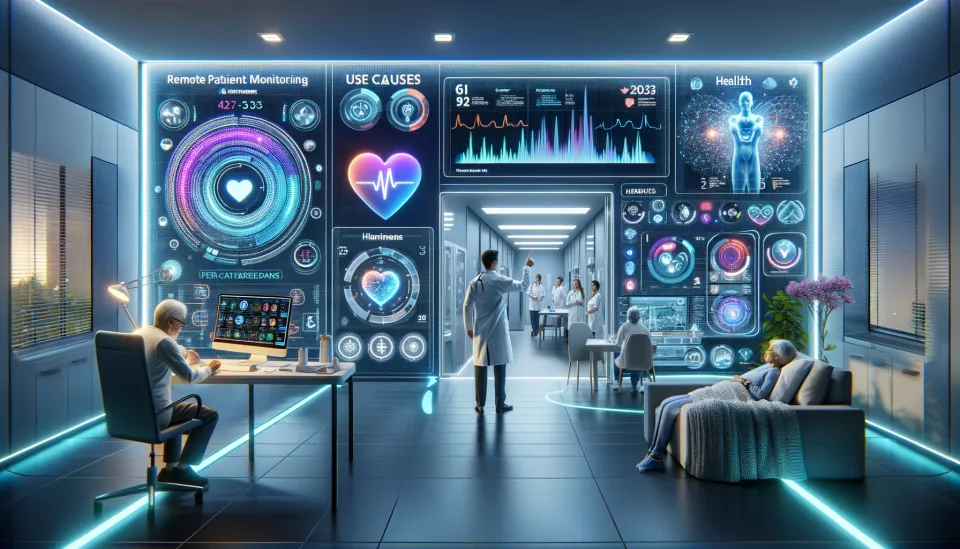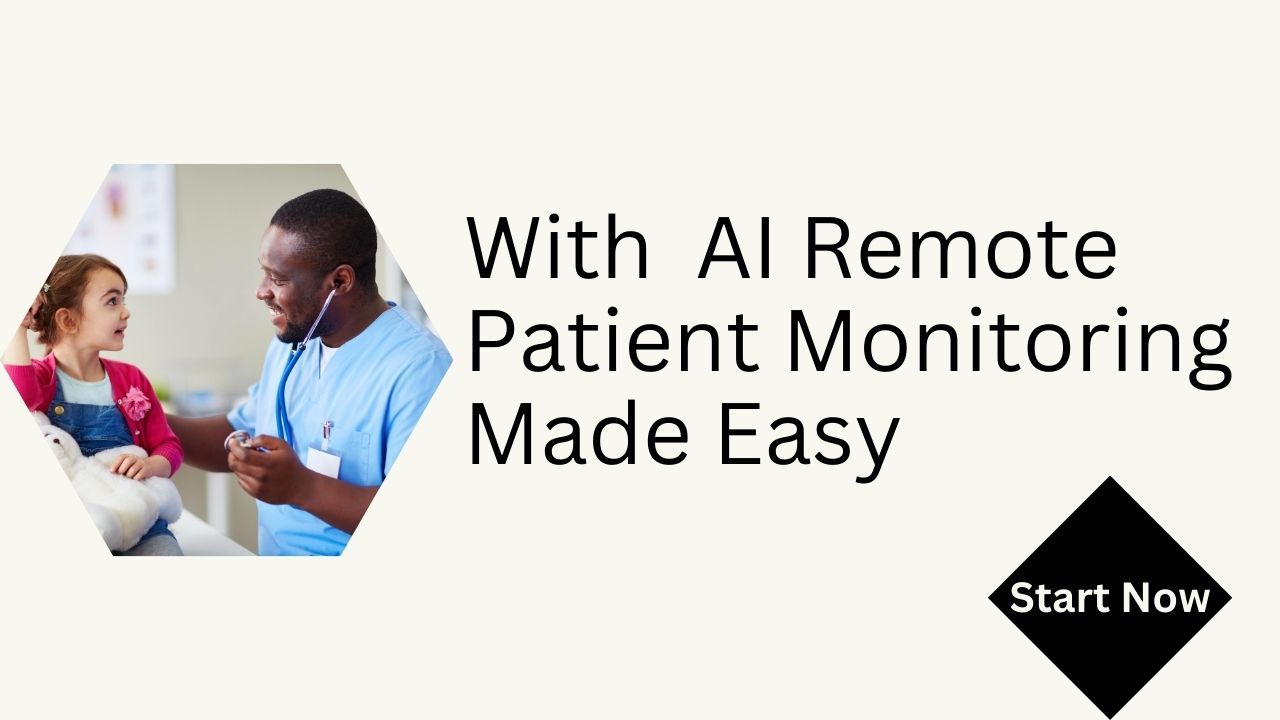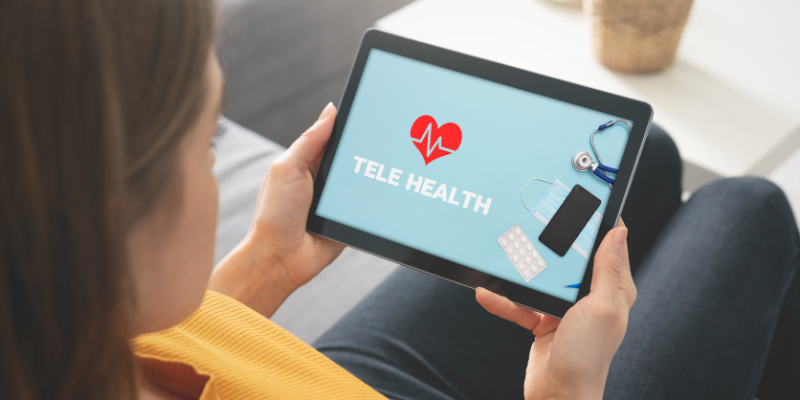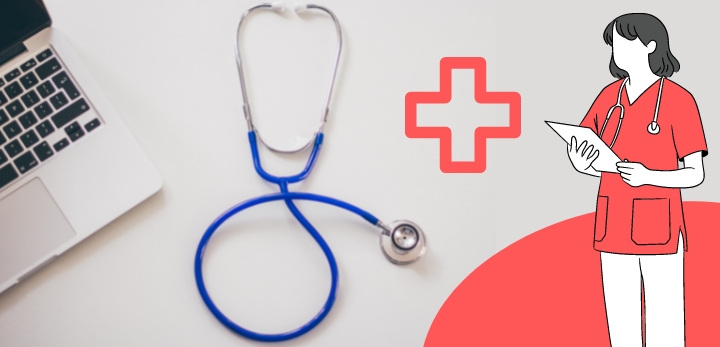AI in Remote Patient Monitoring: The Top 4 Use Cases in 2023

In the rapidly evolving landscape of healthcare technology, Artificial Intelligence (AI) has emerged as a pivotal force in transforming patient care, especially within the realm of remote patient monitoring (RPM). As we navigate through 2023, the integration of AI into RPM systems is not just a futuristic concept but a present reality that is reshaping healthcare delivery, improving patient outcomes, and enhancing the efficiency of healthcare providers. In this blog, we will explore the top four use cases of AI in RPM this year, painting a vivid picture of its impact and potential.
The synergy between AI and healthcare has opened up new frontiers in patient monitoring, particularly with RPM's ability to provide continuous care outside traditional healthcare settings. RPM, empowered by AI, stands at the forefront of this revolution, offering solutions that are not only proactive but also personalized to individual patient needs.
Chronic Disease Management
In the realm of chronic disease management, AI-driven RPM systems are game-changers. They offer real-time data analysis, predicting exacerbations in conditions like diabetes, heart disease, and asthma before they become acute. For instance, AI algorithms can analyze glucose levels or blood pressure trends to suggest medication adjustments, lifestyle changes, or alert healthcare providers to intervene promptly.

Postoperative Care and Rehabilitation
AI in RPM significantly impacts postoperative care and rehabilitation, ensuring patients adhere to their recovery plans from the comfort of their homes. By analyzing data from wearable devices, AI can provide feedback on physical activity levels, wound healing progress, and pain management, reducing the need for in-person visits and preventing readmissions.
Elderly Care and Monitoring
The growing elderly population benefits immensely from AI-enhanced RPM, offering peace of mind to both caregivers and family members. AI systems can detect deviations in daily routines, such as changes in sleep patterns, activity levels, or vital signs, indicative of potential health issues or emergencies, ensuring timely assistance and support.
Mental Health and Wellness Support
Mental health has become a focal point of healthcare, with AI in RPM offering unprecedented support. By monitoring indicators such as activity levels, sleep patterns, and even voice tone during calls, AI can identify signs of depression, anxiety, or stress, enabling early intervention and support from mental health professionals.
A Day in the Life with AI-Enhanced RPM
Imagine Sarah, a chronic heart disease patient, starting her day. Her wearable device, equipped with AI, monitors her heart rate, activity level, and medication adherence. Before she even notices any discomfort, her AI system alerts her to take it easy and avoid strenuous activities for the day, based on slight irregularities in her heart data. Meanwhile, her doctor receives a notification to review her case, ensuring continuous, personalized care without Sarah stepping out of her home.
The integration of AI into RPM is not just enhancing patient care; it's revolutionizing it. With its ability to provide real-time, personalized monitoring and interventions, AI is setting a new standard in healthcare. As we continue to witness its impact across various aspects of patient care, the potential for further innovations and improvements is boundless.


